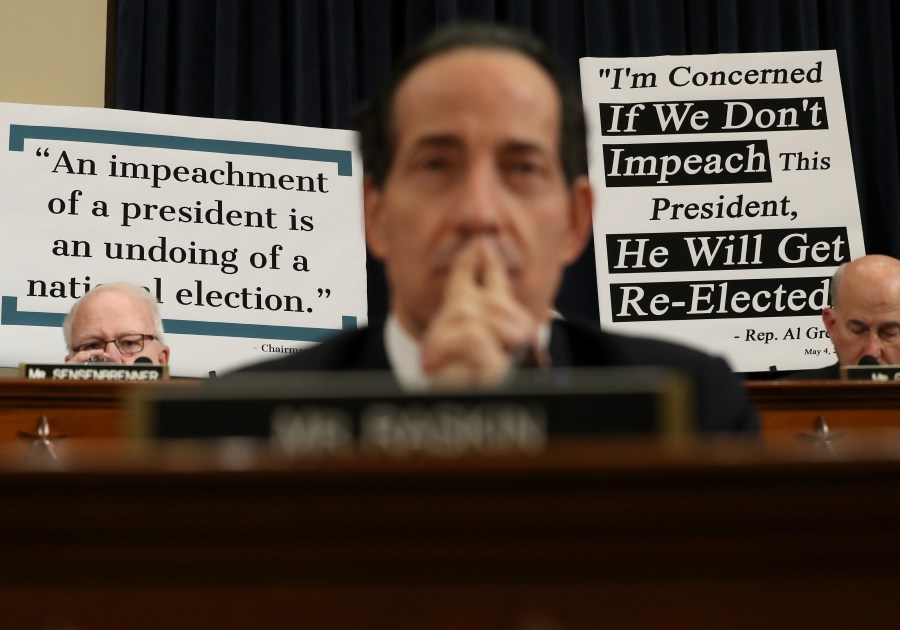What is the Commission on Presidential Capacity?

Speaker of the House Nancy Pelosi (D-CA) speaks during a news conference at the U.S. Capitol on October 9, 2020 in Washington, DC. Pelosi and House Democrats plan to introduce legislation based on the 25th Amendment that would create a Commission on Presidential Capacity that would review a president’s fitness for office. (Photo by Drew Angerer/Getty Images)
WASHINGTON (NewsNation Now) — Former presidents, along with physicians, psychiatrists and retired statespersons could serve on a newly-formed commission, if approved by Congress, to add to the powers of the 25th Amendment of the U.S. Constitution.
A “Commission on Presidential Capacity to Discharge the Powers and Duties of Office” has been floated several times, but will likely be included with Articles of Impeachment that Congressional Democrats are planning on filing next week after the U.S. Capitol riots.
“It is the hope of Members that the President will immediately resign. But if he does not, I have instructed the Rules Committee to be prepared to move forward with Congressman Jamie Raskin’s 25th Amendment legislation and a motion for impeachment,” Speaker of the House Nancy Pelosi said in a statement late Friday.
That legislation was introduced in October by Rep. Jamie Raskin (D-MD). It would establish this commission as part of the 25th Amendment.
“The legislation will enable Congress to ensure effective and uninterrupted leadership in the highest office in the Executive Branch of government by creating the body and process called for in Section 4 of the 25th Amendment to the U.S. Constitution,” according to a statement from Raskin’s office.

Basically, Congress never set up the body the 25th Amendment called for when it was adopted 50 years ago.
“In emergency situations, Congress could pass a concurrent resolution requiring the Commission to examine the President, determine his/her ability to execute the powers and duties of the office, and report its findings to Congress. If presidential incapacity exists, the Vice President would immediately assume the role of Acting President,” Raskin’s office said.
The legislation calls for a 17-person commission:
- Four physicians and four psychiatrists selected by the Speaker of the House, House Minority Leader, Senate Majority Leader and Senate Minority Leader each.
- Four retired statespersons (e.g., former Presidents, Vice Presidents, Attorneys and Surgeons General, Secretaries of State, Defense, and Treasury) to serve, selected by the Democratic and Republican leaders of each chamber.
- A 17th member, who acts as the Chair of the Commission.
“In order to avoid conflicts of interest and both civilian and military chain of command issues, none of the members can be current elected officials, federal employees, or members of the active or reserve military,” Raskin’s office said.
It’s unclear if Republicans will support the measure.









